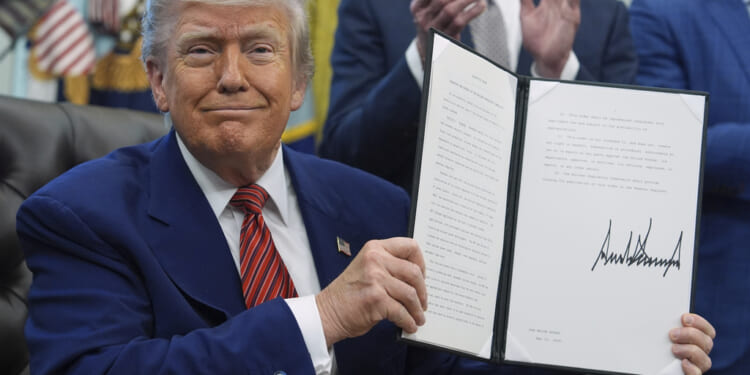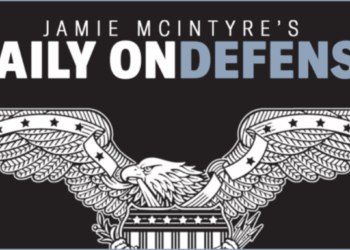Rapidly deploying more nuclear power will require the Nuclear Regulatory Commission to grow in size, not shrink, the Trump administration now says, even as outsiders worry the agency is on the chopping block.
For months, many have feared that President Donald Trump’s executive order on restructuring the regulatory agency would result in sweeping staffing cuts, making it more difficult to deliver on the administration’s goals of quadrupling domestic nuclear capacity and building 10 large new reactors.
Since the executive order was signed in May, the NRC has lost dozens of employees, including several members of the agency’s senior leadership team, as well as two commissioners.
The Trump administration does not appear concerned by these departures, however, and is instead confident that as more companies look to secure federal licenses to build new nuclear power plants and small reactors, the regulatory agency will also expand.
“Despite some of the language in the executive order, the NRC is almost certainly going to be growing in the coming years,” Seth Cohen, chief counsel for nuclear policy at the Department of Energy, said during the American Nuclear Society’s winter conference on Tuesday.
Cohen acknowledged that messaging regarding restructuring workforce understanding can be a cause of concern for any industry.
While the executive order is meant to reduce redundancy on internal teams and provide clearer operational capabilities, Cohen said, the administration’s goal is not to “make this the tiniest Nuclear Regulatory Commission it can be.”
“The president fully anticipates that the NRC will likely need to grow to accommodate an increase in applications that can support 300 additional gigawatts of nuclear power by 2050,” Cohen said.
Cohen has remained central to the administration’s implementation of Trump’s order to rehaul the NRC.
During a Senate hearing with NRC chairman David Wright in September, it was revealed that Cohen had applied pressure on NRC commissioners to “rubber-stamp” and expedite the president’s nuclear agenda during a meeting in May.
“I said, ‘We were just talking about the executive order for DOE, DOD,’ and that’s when the comment was made,” Wright testified. “[Cohen] said, ‘Oh well, y’all are basically going to put in a practice that’s going to sort of rubber-stamp what they do.’”
“We pushed back and said, ‘We don’t rubber-stamp anything at the NRC,’” Wright said.
The NRC has not had a fully seated commission board since the end of July, when commissioner Annie Caputo resigned. Her departure came one month after the unprecedented dismissal of Democratic commissioner Chris Hanson.
Trump has nominated two individuals to fill the empty seats, NRC alums Ho Nieh and Douglas Weaver, and the Senate is poised to vote on Nieh’s nomination in the coming days.
With two commission seats still open and dozens of staffers on the outs, some industry leaders and executives have been worried that the NRC will be unable to accelerate its approval process for new nuclear projects.
Doug Robinson, founder and CEO of advanced nuclear company Natura Resources, told the Washington Examiner on the sidelines of the ANS conference that he views the situation similar to that of the Railroad Commission of Texas, which regulates the oil and gas industry in the Lone Star State.
“The Railroad Commission was constantly losing people to the industry they were trying to regulate,” Robinson said. “So there was that constant push and pull back and forth of ‘we need the Railroad Commission to move faster’ [and] the Railroad Commission say, ‘Well, quit stealing our people.’”
He warned that the NRC could face that same pressure amid the sweeping staff cuts. He described the cuts as a “short- to long-term concern” for the industry as dozens of small modular reactor firms and other advanced nuclear companies look to obtain federal licenses to build.
“They could see dozens of applications coming in from all these different designs and groups, and at that point, I don’t know if they have the manpower to do that,” Robinson said.
As the administration has acknowledged these fears, NRC staff have also sought to assuage the concerns.
REGULATORS DEAR DISMISSAL IF THEY SLOW TRUMP NUCLEAR POWER PLANS
During the ANS conference on Tuesday, David Curtis, special assistant for the ADVANCE Act and Executive Orders at the NRC, said that the agency has been constantly hiring and will continue to do so.
“There’s been much in the press about folks who have been with the agency for a long time leaving the agency, and although that may be true … there are lots, thousands of people who have been with the agency for decades,” Curtis said. “So it’s not like the core of the agency has disappeared.”

















